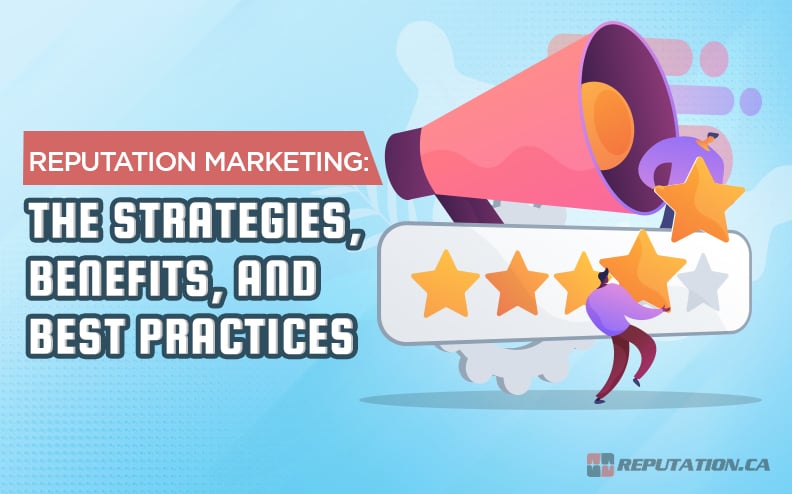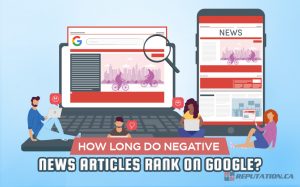A company is only as successful as its reputation allows. A company that has a poor reputation will suffer since most customers will not want to use the services of a poorly reputed company. Therefore, it becomes critical for a company to carefully curate and modify how their target consumer base perceives them.
Maintaining a company reputation requires dedication and resources that can be fully utilized to combat and overcome potential threats to your brand’s image. Given that there are so many potential threats, this can be challenging without fully knowing all the best strategies for managing a reputation.
Marketing your reputation is just as important as marketing your product or service in the industry. The better your reputation, the more customers you will draw in and the more success you will enjoy. However, to properly enhance your company’s reputation, you will likely need to take advantage of certain practices to bring your company to the forefront of your industry.
Without a proper plan, you might find that your reputation will take several hits that devastate it completely. This article aims to provide some insight into the best practices and strategies for a reputation marketing campaign and how they can benefit your company.
What is Reputation Marketing?
Reputation marketing is often used interchangeably with reputation management due to certain similarities. However, more than a few key details distinguish the two. While important, reputation management is generally more a crisis response than a long-term, real-time curation of your business’s overall reputation.
Reputation management is used to influence the information surrounding your company. The tampering of your online reviews or the intentional obscuring of important details that might warn a customer about poor-quality products and services is one aspect of reputation management that can easily be abused.
Reputation management is not inherently an underhanded practice, but it can quickly become one since the end goal of reputation management is to remove blemishes from your record. This censorship tends to do more harm than good, making reputation marketing a more viable option.

Reputation marketing involves active enhancements to your company’s reputation by reconciling the good aspects of reputation management with the rise of social media. Reputation marketing means taking advantage of the legitimate practices encouraged by reputation management while also taking an active social presence with your customers. There are three keys to successful reputation marketing services management:
- Observation: Keeping an eye on the reviews coming in.
- Cultivation: Promoting the creation of new reviews concerning your company.
- Refinement: Turning those reviews into a marketing point for your company.
Using these keys as the basis for your company’s own reputation marketing efforts and endeavors can help you cultivate a new image inviting increased business. So, to successfully market your reputation, you will need to be willing to engage with your customers and acknowledge any issues or concerns they have directly.
This can be somewhat difficult if your company does not have a branch dedicated to marketing your reputation. However, if you can spare the staff to accomplish your reputation goals, you can utilize a few tactics. Since one of the principal components of reputation marketing revolves around your company’s social media and brand’s online presence itself, that should be the first step.
Social media started as a way for us to keep in touch with distant friends and family but has evolved into a very powerful marketing tool used for customers to interact with businesses. This form of interaction has enabled customers to either praise or criticize depending on their personal experiences. However, this has become an even more sensitive issue. People now use social media to scrutinize the commentary made by a company and evaluate how the company communicates with its customers and what policies they espouse. Therefore, taking extreme care of how you word your posts and eliminating off-color posts is critical for protecting your brand reputation now.
Social media management is more than just eliminating the posts that might be perceived as offensive. It is always good to double-check your company’s social media pages for any posts that might be inflammatory in the current sociopolitical atmosphere. However, this only helps manage your reputation and not actively market your brand and reputation to existing and potential customers alike. For this reason, companies need to start thinking on a similar level to modern influencers who use social media as an outreach to their fans.

In addition to undoing any potentially inflammatory posts, you can use social media to promote previous positive customer reviews and relations that might be appealing to potential consumers of your services. Highlighting these positive interactions will enable you to show a more welcoming and accommodating side of your business. Customer interactions on social media also help demonstrate that your customers’ questions and comments are being taken seriously. This can also lead to a spike of “Likes” on your company’s profile, which gets your company’s name out there while bolstering your reputation as a quality service provider.
Most modern companies maintain a presence on platforms like Facebook and Twitter and have LinkedIn profiles. Social media will allow you to interact with your customers and build a positive reputation to attract new ones. However, you will also need to be prudent when addressing the negative aspects of social media when bad reviews come in.
Review Management Can Be Key
Managing the reviews posted about your company and its services is an inescapable part of any reputation marketing strategy. Reviews help customers illustrate what your company does right and what it allegedly does wrong to their fellow consumers. Depending on the circumstances, these reviews could either be valid criticisms, misunderstandings, or flat-out lies from an entitled customer.
No matter which category the review falls under, your response determines whether you are simply managing your reputation or marketing it. In too many cases, businesses will view review management as simply deleting bad reviews to try and keep other potential customers from seeing them. However, this is the wrong decision as it will damage the reputation you are trying to market.
The difference between managing your reputation and marketing your reputation is choosing to handle bad reviews with a level head and a mediator’s outlook. Even if the negative review is misinformed or designed to tarnish your reputation, you should always address it as genuine to maintain the moral high ground. We are not implying you should roll over and allow these people to walk over you, but rather to address the concern and negotiate it to show your willingness to compromise with your consumer base. In these situations, the best things to do are:
- Apologize: Even if the situation is not your fault, apologizing for their experience will demonstrate remorse and ease some residual anger. This can be handy for disarming aggression from the angry customer and endearing other customers to you.
- Request Details: Asking for details about their situation will allow you to get straight down to resolving the problem. If they have images or audio of whatever upset them, ask for copies. This way, there will be hard evidence that can be cited to either make amends or to inform them of any misunderstandings. This also helps to defuse any smear attempts from the more entitled customers of the world.
- Reply: While it might be tempting to respond with hostility in the face of false accusations, discretion is the better part of valor. Formulating a polite response that either offers a solution to the customer’s issue or explains where the mistake was will help you build a reputation as a good business.
Responding to reviews with negative or positive feedback is infinitely more effective than simply deleting unpleasant reviews. It allows you to learn from the mistakes made with certain customers while also disarming those individuals who have weaponized reviews for their benefit.

Deleting reviews makes it seem like your company is unapologetic or has something to hide, whereas acknowledging and resolving them cultivates a reputation with which more consumers will want to do business. This is a sort of indirect marketing strategy, since the average person wants to conduct business with good companies over shady ones.
Reviews can either be your most dangerous threat or your most powerful tool. Customers are more liable to trust the reviews of fellow customers than the posts of your company. In fact, a consumer review conducted this year found that 70% of customers are wary of staged reviews and more likely to trust the opinion of customer reviews. Conversely, 89% of customers are more likely to use the services of a company that responds to every review.
Obviously, reviews can make or break your company’s reputation, and demonstrating an interest in what your customers have to say makes your business more marketable. However, marketing your reputation cannot always be passive. Sometimes, you will need to take the first step in communicating with the people who compose your consumer base.
Establish an Outreach Program
It can be tempting to sit back and wait for the reviews or comments to come your way. However, this can leave you at a severe disadvantage if you are trying to market your company’s reputation since it forces you to take a reactive stance to customer feedback. When you are only reacting to issues your customers have, you are consistently on the defensive and cannot preemptively fix an issue before it becomes a major issue. Fortunately, one of the best tools for counteracting this is reaching out to customers in advance to prevent negative feedback and getting their stance on the product or service you offer. The only question is how to go about it.
The use of online review sites and social media enables you to directly communicate with your customer base and ask their opinions on your company. However, you should also encourage your customers to leave reviews and make suggestions, especially if they are satisfied. Doing so will reinforce the number of good reviews associated with your company and bolster your overall reputation.
One of the best ways to convince customers to leave a review following a satisfactory transaction is to incentivize doing so with coupons and discounts on future services. This has a two-fold benefit on your company’s reputation and helps market that reputation to potential customers. The first is the aforementioned boost to the ratio of good to bad reviews, and the second is that it increases the odds of satisfied and happy customers going on to recommend you to their friends.

Another way you can take a proactive approach to resolve issues is by enabling a digital suggestion box on your company’s main website. This will allow you to get a genuine insight into what your customers want and has the added benefit of tailoring a reputation as a company that listens to and values its customers’ opinions. While this does require a little due diligence into the contents of these suggestion boxes, you will find that they can serve an immensely valuable role in enhancing your company’s reputation in the eyes of the public.
Taking these suggestions into account also helps to make your company’s promises come off as more authentic. Authenticity is easily one of the more important parts of a company’s reputation, so making false promises or paying for positive reviews can eviscerate your company’s reputation in your customers’ eyes.
Take Your Reputation Into Your Hands
A company’s reputation is one of the most crucial resources since it determines success. A company with a reputation for disrespecting and disregarding its customers will see significantly less business than one that listens to and respects its customers. Too many companies believe that simply managing their reputation and trying to shield it from negativity is all that matters. In reality, it is critical that a business actively try to turn its reputation into its main selling point since a good reputation is a major draw for both new customers and returning customers.
By taking a more active role in customer relations and services, your company’s reputation will see growth and sustainability far beyond anything a passive approach would earn. Unfortunately, some aspects of maintaining your company’s image can be challenging to accomplish independently.

Trying to manage and market your company’s reputation on your own can be next to impossible unless you have the resources to create an entire branch. While this might seem disheartening, there is a solution. We at Reputation have made it our mission to offer reputation management and brand marketing services so that you can market your company’s image with pride.
Our services include review and social media management designed to help improve your notoriety on social media platforms and review sites and deal with any negative reviews that might come in. We know that juggling that many plates at once can be a hassle and take time away from more pressing projects. So, if you need some assistance in bringing your reputation back up to snuff, visit our website today to take your reputation back into your hands.
FAQ on Reputation Marketing
What is reputation marketing and why is it important?
A: Reputation marketing involves actively influencing and managing the public perception of a brand or business, with the aim of enhancing its reputation. It is important because a positive reputation can attract more customers, boost sales, and lead to increased trust and credibility.
How can I create a reputation marketing strategy for my business?
A: To create a reputation marketing strategy, you can start by monitoring and managing online reviews, maintaining active engagement on social media, showcasing positive customer feedback, and addressing any negative feedback promptly and effectively.
What are the benefits of reputation marketing?
A: The benefits of reputation marketing include improved brand perception, increased customer trust, higher conversion rates, better online visibility and customer acquisition, and a competitive advantage in the market.
How can I implement a reputation marketing strategy?
A: You can implement a reputation marketing strategy by utilizing reputation management software, actively seeking and promoting positive reviews, optimizing your online presence, using social media comments and consistently monitoring and addressing any reputation-related issues.
What is the significance of online reviews in reputation marketing?
A: Online reviews play a crucial role in reputation and marketing campaigns, as they directly affect the perception of a business or brand. Positive reviews can enhance reputation, while negative feedback can diminish it.
How can reputation marketing help improve my online presence?
A: Reputation marketing can improve your online presence by promoting positive brand messaging and content, generating trust through online reviews, and ensuring that your brand’s reputation aligns with its online image.
What are some effective strategies for managing negative feedback in reputation marketing?
A: Some effective strategies for managing negative feedback include promptly addressing complaints, offering solutions to rectify the situation, and showcasing your commitment to customer satisfaction through transparent communication.
What role does reputation marketing software play in enhancing a business’s online reputation?
A: Reputation marketing software can help in monitoring online reviews, analyzing customer feedback, managing brand perception, optimizing online presence, and implementing strategies to strengthen a business’s online reputation.
How does reputation marketing differ from traditional marketing efforts?
A: Reputation marketing focuses on building and maintaining a positive brand image through customer feedback and online reputation management, while traditional marketing efforts primarily revolve around promoting products or services through various marketing channels.
Why is it important for businesses to focus on reputation marketing and management?
A: It is important for businesses to focus on reputation marketing and management because a positive reputation directly impacts customer perception, trust, customer acquisition costs and ultimately, the success and growth of the business.












